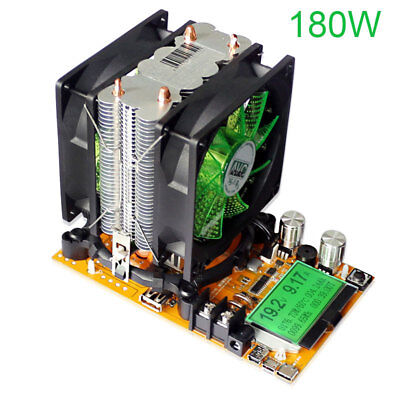Hi everyone... It has been a while. I hope y'all are well these days.
I have a question or two about my battery bank (again). I am not sure about the overall health of my batteries. I have done a resting test; having left the batteries disconnected for 24 hours then reading the voltage... then reading the SG with a refractometer. The data from the house bank is attached in a picture below. A few weeks ago we went and anchored out, however, when we went to lift the dinghy with our davit crane, the winch (a 12v Dayton from Grainger), the motor strained, I assumed dropped the voltage, spiked the amperage, and tripped the breaker. The winch runs strong when connected to shore power, so I don't think it is that (but I have since replaced it out of an abundance of caution). Are my batteries in need of replacement? More below...
Backstory: We are a 42' planing motoryacht. I completely overhauled the DC system (with yall's help) five years ago. The DC system consists of two banks. The house bank is eight GC2 standard Penn 6v flooded golf cart batteries. The other is three 12v Group 27 dual purpose batteries that do starter duty for both motors and the genset. All batteries are five years old, but they have lived a very easy life. Due to various circumstances over these years (hurricanes and such) we have really only anchored out maaaaaayyyyybe five times? The remaining time, the batteries have been on a Sterling 60A charger (with temp probe).
I feel like there is some conflicting data here. The resting voltages seem okay, but the specific gravity says differently. Or am I reading that wrong? At anchor, the Victron gauge shows (if memory serves) 12.2v for the house bank. While there still may not be a ton of use in the near future, when we DO go out, I'd like to be confident that the batteries are in good shape. I am not totally against replacing the lot, I would hate to waste $1000 if they are still in decent shape. Is there something I am missing or another test I need to conduct?
Thanks!!
I have a question or two about my battery bank (again). I am not sure about the overall health of my batteries. I have done a resting test; having left the batteries disconnected for 24 hours then reading the voltage... then reading the SG with a refractometer. The data from the house bank is attached in a picture below. A few weeks ago we went and anchored out, however, when we went to lift the dinghy with our davit crane, the winch (a 12v Dayton from Grainger), the motor strained, I assumed dropped the voltage, spiked the amperage, and tripped the breaker. The winch runs strong when connected to shore power, so I don't think it is that (but I have since replaced it out of an abundance of caution). Are my batteries in need of replacement? More below...
Backstory: We are a 42' planing motoryacht. I completely overhauled the DC system (with yall's help) five years ago. The DC system consists of two banks. The house bank is eight GC2 standard Penn 6v flooded golf cart batteries. The other is three 12v Group 27 dual purpose batteries that do starter duty for both motors and the genset. All batteries are five years old, but they have lived a very easy life. Due to various circumstances over these years (hurricanes and such) we have really only anchored out maaaaaayyyyybe five times? The remaining time, the batteries have been on a Sterling 60A charger (with temp probe).
I feel like there is some conflicting data here. The resting voltages seem okay, but the specific gravity says differently. Or am I reading that wrong? At anchor, the Victron gauge shows (if memory serves) 12.2v for the house bank. While there still may not be a ton of use in the near future, when we DO go out, I'd like to be confident that the batteries are in good shape. I am not totally against replacing the lot, I would hate to waste $1000 if they are still in decent shape. Is there something I am missing or another test I need to conduct?
Thanks!!
Attachments
-
249 KB Views: 417


